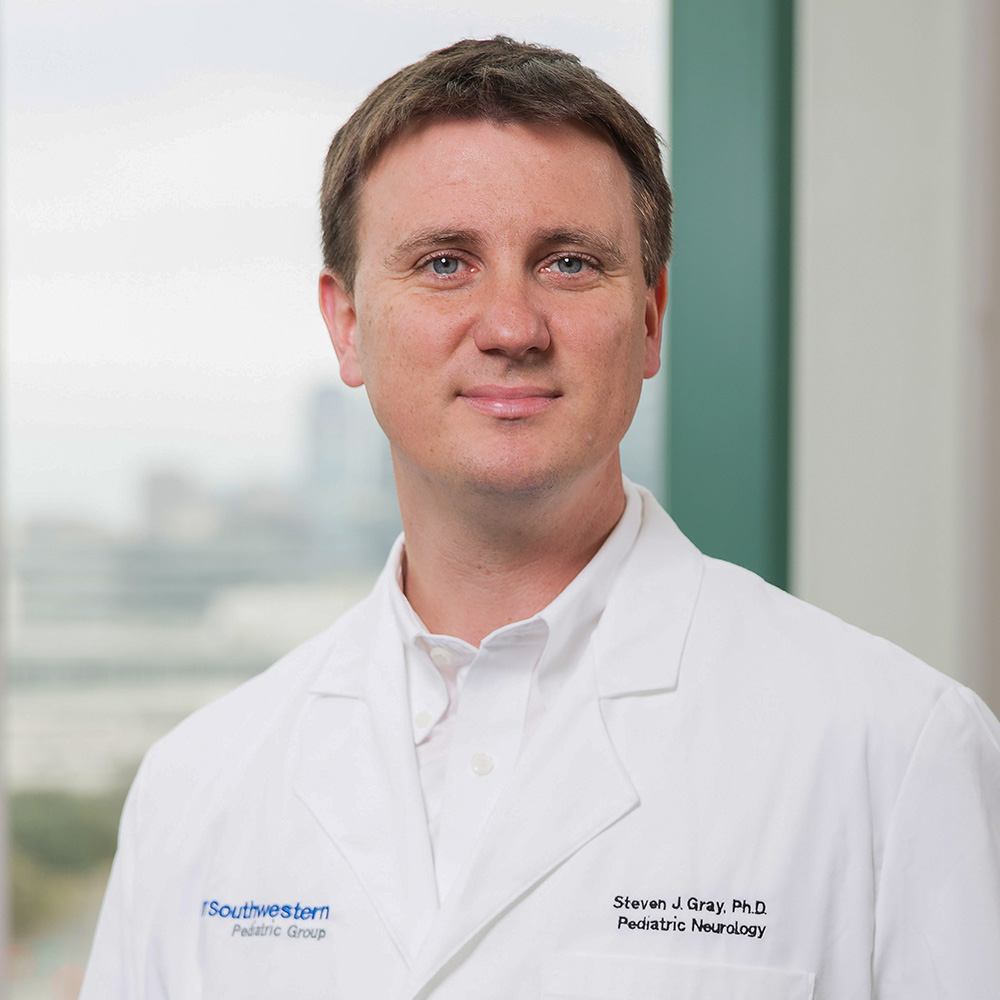When stroke strikes at age 27
Brain bypass surgery enables patient with rare disease to fulfill her dreams

Kellie Whitton was eating a late-night dinner with her sister Emily at a Fort Worth sushi restaurant when her right arm suddenly went numb. As a nurse with knowledge about disease symptoms and risk factors, the possibility of stroke was the furthest thing from her mind.
Instead, Mrs. Whitton suspected an allergic reaction to eating eel sushi. A quick Internet search revealed that indeed could be the case. But when her arm numbness worsened, she asked her sister to drive her to the emergency room at Texas Health Harris Methodist Hospital Fort Worth, where she worked.
“My arm was numb and I couldn’t move it,” she said. “An MRI revealed I had suffered a stroke.”
Dumbfounded, Mrs. Whitton was admitted to Texas Health Fort Worth that Saturday night in March 2012. She wondered, how could something like this happen to someone so seemingly healthy, and only 27 years old? Sometime that night, she suffered a second stroke – and this time it was a major stroke.
“The next morning when I woke up I couldn’t move my leg or my whole right side. I couldn’t speak. I couldn’t move my hand, and I couldn’t walk,” she said, recalling that terrifying day.

The next few days were a blur. A stroke team came in to assess her condition and confirmed she had, in fact, suffered a major stroke. She was quickly moved to the hospital’s ICU. A complete medical workup was ordered, concluding with an angiogram that Sunday. Her stay in ICU lasted a week as hospital personnel monitored her condition and evaluated treatment options.
“It’s hard to talk about,” Mrs. Whitton said, her voice breaking. “We didn’t know what was going to happen. It was a really terrible time.”
Making sense of the unimaginable
Over the next few days, Mrs. Whitton prayed for the best, and prepared for the worst. She tried to stay strong, but the tears flowed. Family and friends surrounded Mrs. Whitton with support. No one could say exactly how much damage had occurred, whether she would fully recover, or even what her future outlook was.
“We actually thought we were going to lose her,” said her mother, Sharon Doss of Fort Worth.
Power, and hope, returned in the form of knowledge. Mrs. Whitton’s neurosurgeon at Texas Health Fort Worth called Dr. Babu Welch, a neurosurgeon at UT Southwestern Medical Center who specializes in endovascular surgery for stroke. After seven days in ICU, she was transferred to UT Southwestern’s Zale Lipshy University Hospital. Dr. Welch, Associate Professor of Neurological Surgery and Radiology, and holder of the Duke Samson Chair of Neurological Surgery, examined Mrs. Whitton’s angiogram and MRI results. He diagnosed her with moyamoya disease, a rare condition that causes constriction of blood vessels in the brain, and life-threatening strokes.
The disease primarily affects children, but can also occur in adults, according to the National Institute of Neurological Disorders and Stroke. About 1 in 10 people with the disease has a close relative also affected, indicating a possible hereditary link. Surgery bypassing blocked arteries is the usual treatment; without surgery, the majority of those with moyamoya experience mental decline and multiple strokes. The disease can be fatal due to multiple strokes and hemorrhage, which are possible complications.

“Moyamoya is a progressive narrowing of blood vessels at the base of the skull. It literally means ‘puff of smoke.’ The new blood vessels that the body creates to provide blood flow to the brain look like a puff of smoke on an angiogram,” Dr. Welch said.
In Mrs. Whitton’s case, brain bypass surgery was recommended. However, new imaging tests showed some improvement in the days following her hospitalization. So Dr. Welch advised waiting and carefully monitoring her condition, prescribing dual anti-platelet therapy in the interim.
She was released from Zale Lipshy on May 2, exactly 33 days from the Saturday night that she suffered the stroke. Next, the anxious waiting began.
A new normal
Before moyamoya turned Mrs. Whitton’s world upside down, she was a happy, ambitious young woman with goals of advancing in her nursing career, marrying, and starting a family. She had earned a bachelor’s degree in communications at the University of North Texas in 2006 and later went on to the University of Texas at Arlington to pursue nursing. She graduated from UTA in 2011, and landed her first nursing job the following year – the same year she had the stroke.

Life after such a debilitating event dramatically changed things. She moved in with her parents and sister Emily, putting her job on hold as she slowly regained function.
“It was devastating to see her like that,” said Mrs. Doss. “She couldn’t walk or talk. She went from not being able to move her finger, to a wheelchair, to a special walker, to a regular cane, to a three-pronged cane, to nothing.”
The transition from being a nurse used to helping others to having to rely on her family and friends for basic needs was humbling.
“I was basically helpless, and I hated it, Mrs. Whitton said. “My mother, sister, and friend Sarah had to help me do everything, from getting dressed to toiletry needs. I tried to do as much as I could by myself, but you can only do so much when half your body doesn’t work.”
As Dr. Welch continued to closely monitor her condition, Mrs. Whitton slowly recovered, and her optimism grew. She met her husband, Adam Whitton, in August of that year. For their first date, he asked her to a Texas Rangers game.
“I walked so slow. I had a brace on my leg and I said to myself, ‘I am not going to use a cane on my first date with this guy.’ Luckily, we didn’t have to walk a lot,” she said. “I kept thinking, this guy is not going to ask me out again, but he did. When he dropped me off, he said, ‘I’d really like to see you again.’ ”
Mrs. Whitton was upfront about her condition; she let Adam know she had this rare disease and that chances were good she might suffer another, potentially life-threatening, stroke. Future surgery was a strong possibility.
In 2013, Mrs. Whitton underwent another MRI scan. The news was good. Her blood flow had improved, due in part to the medication she was taking. All seemed well; maybe surgery would not be needed.
That October, Mr. Whitton asked her to marry. She said yes, and they began making plans for a May 10, 2014, wedding.
Change of plans

Mrs. Whittton remembers details of the day exactly. It was March 17, 2014, and she came with her fiancé, Adam, for another MRI scan ordered by Dr. Welch to check her blood flow. This time, the news wasn’t good.
“It showed my blood flow was actually worse,” she said. “Dr. Welch had changed my therapy to only aspirin. Dr. Welch said, ‘We need to do surgery.’ At that point I just started crying. Nobody wants to have brain surgery, and especially not six weeks before their wedding. He said, ‘We need to do it.’ I said, ‘When,’ and he said, ‘As soon as possible.’ ”
The brain bypass surgery was scheduled for March 28, 2014 – nearly two years to the day after her stroke. Dr. Welch would move an artery from her scalp and attach it to one in her brain that was not affected by her syndrome. Because the scalp artery is the “superficial temporal artery” (STA) and the brain artery is the “middle cerebral artery” (MCA), this procedure is called an STA-MCA Bypass. Although this risky surgery is not common, Dr. Welch had successfully performed it more than 40 times, and he was considered one of the best in Texas at this delicate type of neurosurgery.
“This is not a procedure that many neurosurgeons practice nowadays. As a cerebrovascular center, patients are referred to us for this level of expertise,” Dr. Welch said.
The three-hour surgery was a success, with no complications. Dr. Welch even took care to minimize the necessary shaving of Mrs. Whitton’s head since she was determined not to postpone her wedding.
“My hair is really thin, and Dr. Welch was able to part it and go in through the hairline. That’s one of the reasons I really love Dr. Welch, because he is so hands-on. I completely trusted him with everything, and his team.”
And even though the whole left side of Mrs. Whitton’s face was swollen immediately following the surgery – “I looked like I had a huge black eye swollen shut,” she said – recovery was swift, and the wedding proceeded as planned.
A new beginning

Chandeliers adorned the barn located in a pecan orchard in Aurora, Texas, where Kellie and Adam Whitton said their wedding vows. The outdoor wedding – themed rustic elegance and lace – was a dream come true, with three bridesmaids, a junior bridesmaid (her new stepdaughter, McKenzie), and four groomsmen.
“It’s going to be beautiful,” Mrs. Whitton said at the time, a few weeks before her wedding.
After a six-day honeymoon in Cabo San Lucas, life returned to almost-normal for Mrs. Whitton. In the two years since her stroke, Mrs. Whitton has returned to work as a nurse, married, and regained almost all of her previous physical function affected by the stroke. Her handwriting isn’t quite as perfect nowadays, and she has a bit of a limp that limits physical activities, but other than that, stroke disabilities are gone.
At Texas Health Fort Worth, she currently works as a nurse in an observation unit that monitors patients undergoing testing, a group that includes many patients with cardiac-related symptoms. The irony of her job and its close connection to her own cardiovascular condition doesn’t escape her.

Further proof that stroke does not have to define someone’s capabilities, hopes, and dreams came on March 18, 2015, when the Whittons had a baby, Grayson, joining stepsister McKenzie. The month of March, it seemed, would be associated from that day forward with happier times.
On June 3, 2015, Dr. Welch performed bypass surgery again, this time on the other side of Mrs. Whitton’s brain. She has done phenomenally well since.
“I couldn’t be happier. I’m healthy and am grateful to Dr. Welch and UT Southwestern for literally saving my life. Their surgical expertise, exemplary care, and knowledge about how best to treat my condition made all the difference. I might not be alive today had it not been for their outstanding care,” she said.
Stroke expertise matters
UT Southwestern’s Robert D. Rogers Advanced Comprehensive Stroke Center is among an elite group of stroke centers recognized nationally for its exemplary care of specialized stroke cases. In 2014, the stroke center earned joint certification by The Joint Commission and American Heart Association/American Stroke Association as an Advanced Comprehensive Stroke Center. In January 2016, the Center earned recertification.
For high-risk or specialized cases such as Mrs. Whitton’s, this means quick access to the best care, the highest-trained team of neurosurgeons and neurovascular experts, and ability to use the latest stroke treatments and technologies available. Certification as an advanced comprehensive stroke center requires that a hospital provide 24/7 access to the technology and medications that can limit damage during or after a stroke.
“The reason Mrs. Whitton’s initial neurosurgeon called us is because she knew UT Southwestern had one of the few medical centers in the U.S. that was doing bypass procedures,” Dr. Welch said. “The team works together so that we can achieve the best outcomes for stroke patients.”
For Kellie Whitton, now age 31, her stroke in 2012 is a fading memory, replaced by more pleasant memories such as watching her 1-year-old son walk for the first time. In her opinion, the outcome couldn’t be more perfect.
“I feel really, really good,” she said. “I had heard Zale was the place to be for any kind of neurological problem or stroke. I came to the right place. Dr. Welch – to me, he’s the best.”




